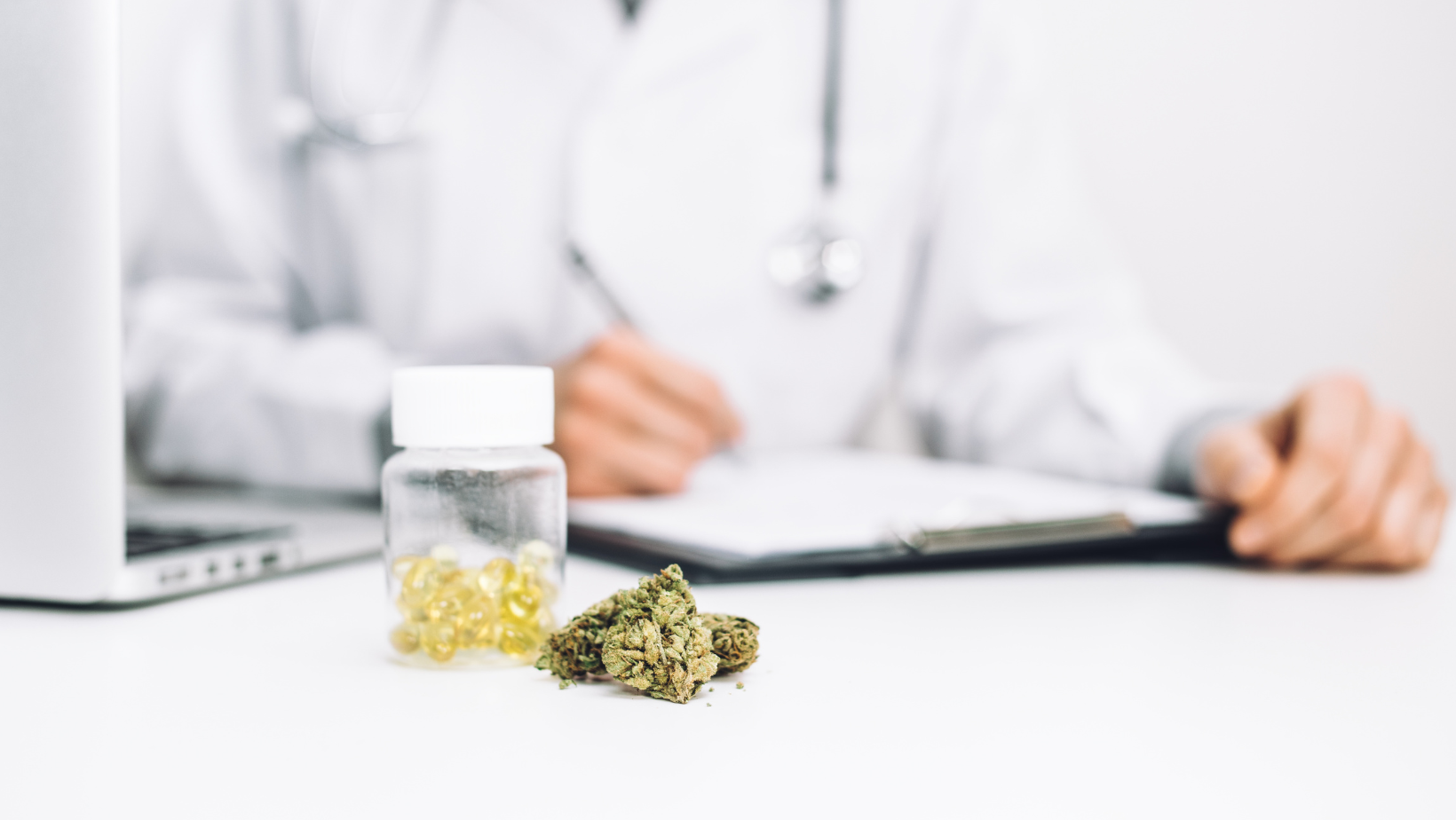What are the Proven Potential Medical Benefits of Cannabis?
Did you know that National Medical Cannabis Week is November 1st through 7th? Since medical cannabis has been life changing for so many people, we figured we’d dedicate this blog to some of the proven medical benefits of cannabis.

November 3, 2023
Before we dive in, keep in mind that medical cannabis users need to get a doctor’s recommendation. Even if you don’t have a medical cannabis card, we always recommend talking to your doctor before deciding to use cannabis for any medical condition. While it is legal for both medical and recreational use in Washington, that doesn’t mean it comes entirely without risk. Your doctor can help you decide if using cannabis could be a safe and effective option for you.
Without further ado, let’s take a look at the proven medical benefits of cannabis to celebrate National Medical Cannabis Week.
Intractable Pain
Intractable pain refers to pain that is not effectively controlled with regular medical care, such as standard treatments or medications. It can occur from a variety of health problems and be felt anywhere across the body.
Those who don’t find success using standard medical care for their pain may benefit from medical cannabis, and it’s one of the most common reasons people get recommended a medical marijuana card.
Studies have found that cannabis is an effective pain reliever, at least in some cases. For example, one study found that 10 milligrams of THC provided as much pain relief as a moderate dose of codeine. While both drugs produced similar side effects, researchers noted that THC seemed to be more sedating than codeine.
Cancer and HIV
For both cancer and HIV, cannabis is sometimes used to relieve symptoms related to the conditions. It is not used to treat either condition, but rather make life more manageable.
For example, both cancer and its treatment, as well as HIV, can cause symptoms like weight loss, nerve pain, and problems with appetite. When other treatments aren’t doing the trick, doctors may recommend patients try cannabis for relief.
Studies have found that cannabis may be effective in relieving nausea and vomiting from chemotherapy. One HIV study found that many patients self-reported improved appetite and reduced muscle pain, nausea, anxiety, and nerve pain from cannabis use.
Posttraumatic stress disorder (PTSD)
Cannabis is sometimes used to help manage PTSD, a psychiatric disorder that occurs in those who have experienced or witnessed something traumatic. Symptoms range from feeling tense and on edge and having sleep troubles to issues with concentration, anger, risky behavior, and more.
Several studies have shown positive potential for cannabis in the treatment of PTSD. The National Center for PTSD states that people with this condition have a greater availability of CB1 receptors (one of two prominent cannabinoid receptors) compared to controls. Because of this, it’s possible that people with PTSD who use cannabis may experience short-term reductions of their symptoms.
Glaucoma
Medical cannabis is sometimes recommended to help manage glaucoma, a group of eye diseases that can damage the optic nerve behind the eye, sometimes causing vision loss or blindness.
There is a long history of research dating back to the ‘70s that indicate cannabis may reduce intraocular pressure, the key contributor to glaucoma. However, current research to back this up is limited. Though doctors may recommend cannabis for glaucoma after typical treatments don’t work, eye drops, lasers, and surgery are more commonly recommended treatment plans.
Diseases that cause nausea, vomiting, appetite loss, and more
Cannabis may also be recommended for a number of conditions that are unrelieved by standard medical treatments, such as anorexia. Conditions that cause people to lose weight, experience muscle spasms or spasticity, appetite loss, seizures, vomiting, and more may be met with a cannabis recommendation.
Marijuana can potentially reduce nausea and vomiting and improve one’s appetite to make it easier to eat. As with everything on this list, doctors do not recommend cannabis for these conditions until they’ve noted limited success with standard treatments.
Washington State Medical Cannabis Qualifying Conditions
The full list of accepted conditions for obtaining a medical cannabis recommendation in Washington state is as follows:
- “Cancer, human immunodeficiency virus (HIV), multiple sclerosis, epilepsy or other seizure disorder, or spasticity disorders.
- Intractable pain, limited for the purpose of this chapter to mean pain unrelieved by standard medical treatments and medications.
- Glaucoma, either acute or chronic, limited for the purpose of this chapter to mean increased intraocular pressure unrelieved by standard treatments and medications.
- Crohn’s disease with debilitating symptoms unrelieved by standard treatments or medications.
- Hepatitis C with debilitating nausea or intractable pain unrelieved by standard treatments or medications.
- Diseases, including anorexia, which result in nausea, vomiting, wasting, appetite loss, cramping, seizures, muscle spasms, or spasticity, when these symptoms are unrelieved by standard treatments or medications.
- Chronic renal failure requiring hemodialysis.
- Posttraumatic stress disorder.
- Traumatic brain injury.”
Medical cannabis has a long history in the United States and has had life-changing impacts on many people. While it may not always be the right choice, we are proud to live in a state where the option is available. Of course, if you’re wondering about a specific condition, you’ll need to discuss the potential benefits and risks of medical cannabis with your healthcare team.
To learn more about the difference between recreational and medical cannabis, check out our previous blog on the topic.
Ready to stock up?
Want great weed at great prices? We have you covered at Piece of Mind Cannabis. Stop by and say high today.
Piece of Mind Cannabis is a medical marijuana and recreational Cannabis dispensary with locations in North Spokane, South Spokane, Bellingham, and Pullman, Washington.
Follow us on Instagram, Facebook, or Twitter.